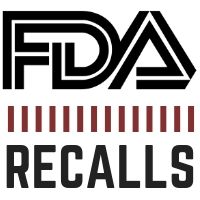Article
Some EpiPen Auto-Injectors May Not Readily Slide Out of Carrier Tube
Author(s):
Not sure what’s been recalled, withdrawn from the market, or had safety updates? Catch up on the US Food and Drug Administration’s (FDA's) recalls and safety news from this past week.

Some EpiPen Auto-Injectors May Not Readily Slide Out of Carrier Tube
Due to the potential of blocked access to the auto-injector and the prevented ability to easily access the product, the FDA is issuing a warning for some of the EpiPen 0.3mg and EpiPen Jr 0.15mg auto-injectors as well as the authorized generic versions.
According to a letter from Pfizer, the manufacturer of the Mylan EpiPen, inappropriate application of the label sticker on the auto-injector unit can cause resistance when removing it from the carrier tube.
Consequently, inability to quickly remove the epinephrine auto-injector from the carrier tube may result in some cases for patients.
For more information on this warning, read the FDA’s statement.
Irbesartan Tablets Recalled by Sciegen Pharmaceuticals for Detection of Trace Amounts of NDEA (N-Nitrosodiethylamine)
Due to the presence of an impurity—N-nitrosodiethylamine (NDEA) contained in the API Irbesartan—ScieGen Pharmaceuticals is voluntarily recalling specific lots of Irbesartan Tablets, USP 75 mg, 150 mg, and 300 mg dosage forms.
Indicated for the treatment of hypertension, Irbesartan tablets, USP may be used alone or in combination with other antihypertensive agents.
The recalled tablets are labeled as Westminster Pharmaceuticals and Golden State Medical Supply, Inc [GSMS].
For more information on this recall, read the FDA’s statement.
Cardiosave Hybrid & Cardiosave Rescue Intra-Aortic Balloon Pumps (IABPs) Recalled by Maquet Datascope Corp./Getinge Group for Possible Malfunction and Failure at High Altitudes
Due to possible malfunctions at high altitudes, Maquet Datascope Corp is recalling Cardiosave Hybrid and Cardiosave Rescue Intra-Aortic Balloon Pumps (IABPs).
The 2 medical devices are cardiac assist devices used to treat patients undergoing cardiac and non-cardiac surgery, or who have acute coronary syndrome or complications from heart failure.
At high altitudes above 3200 feet, the devices can malfunction—the autofill processes may malfunction or fail during use—resulting in either interruption or cessation of therapy upon the first maintenance autofill or the inability to start therapy.
For more information on this recall, read the FDA’s statement.
CoaguChek XS PT Test Strips Recalled by Roche Diagnostics for Inaccurate INR Test Results
Due to inaccurate International Normalized Ratio (INR) test results, when compared to laboratory results, Roche Diagnostics is recalling CoaguChek XS PT Test Strips.
Used to monitor patient response to warfarin, a blood thinner prescribed to prevent and treat blood clots, the strips measure how long it takes the blood to clot and provides the result based on a standardized calculation in the form of the INR.
In order to determine alternative test methods and address questions regarding their testing schedule, patients should immediately contact their health care providers and patient self-testing service providers.
For more information on this recall, read the FDA’s statement.
Genetic Tests with Unapproved Claims Warned Against by FDA for Predicting Patient Response to Specific Medications
The FDA is issuing a warning to patients and health care providers regarding a number of genetic tests that predict a patient's response to specific medications due to insufficient scientific or clinical evidence to support the use for most medications.
Inappropriate treatment decisions and potentially serious health consequences could result for a patient if drug treatment is changed based on the test results.
Patients are encouraged to change or stop taking any medicine that was based on a report from such a genetic test. The FDA is currently investigating the unapproved uses of the genetic tests.
For more information on this warning, read the FDA’s statement.
For FDA recalls and safety updates regarding food products, visit Contagion®’s recall list.





